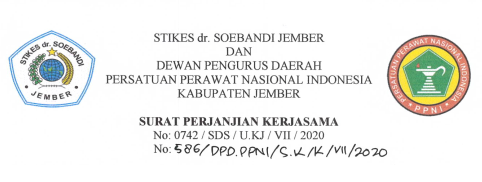Family Perception and Knowledge Role In Reducing Patient Delayed Arrival With Acute Coronary Syndrome
DOI:
https://doi.org/10.36858/jkds.v8i2.215Keywords:
Persepsi Keluarga dan Peran Pengetahuan Dalam Mengurangi Kedatangan Pasien Yang Tertunda Dengan Sindrom Koroner Akut, Delayed Arrival, Family perception and knowledge, Acute Coronary SymptomAbstract
Acute coronary syndrome (SKA) is a clinical sign and symptom of myocardial ischemia which is a cardiovascular emergency. However, delayed arrival at ER is a common case. Delayed arrival associated with family knowledge factor and family perception in recognizing the SKA signs and symptoms. This study aims to determine the relationship between families’ knowledge and perceptions with SKA patient delayed arrival in IGD Pelayanan Jantung Terpadu RSUP Sanglah Denpasar (Integrated Heart Service Sanglah Hospital Denpasar ER). This research is a quantitative research with cross-sectional design. Data collection technique used purposive sampling with 292 families of patients who deliver SKA patients to Sanglah Hospital ER. The research result exhibit 73,3% of patient's family does not possess SKA knowledge. On the other hand, 62,3% of patient's family perceive SKA symptom as fatigue resulted from daily activity. Patient delayed arrival in ER is related to family members lacking SKA knowledge and family perception that the symptoms experienced by patients is caused by fatigue. Therefore health workers need to provide counseling to families regarding SKA signs and symptoms, healthy lifestyle, and the importance to promptly coming to ER when SKA symptoms emergency





